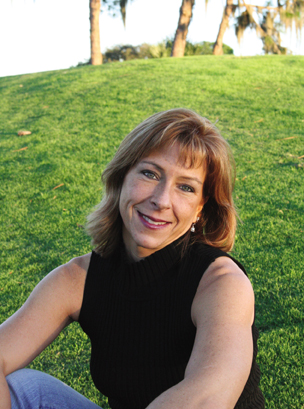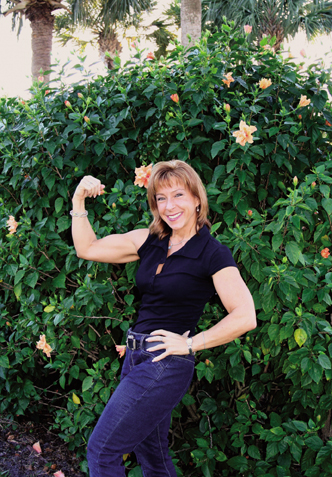HOME
PAST DIGITAL ISSUES
HIV/AIDS HOTLINES
HIV 101
POSITIVE PROFILES
ASO SPOTLIGHT
RECENT ARTICLES
HOW TO PAY FOR HIV TREATMENT AND MEDICATIONS
ADAP CRITERIA AND FORMULARIES
ASO LISTINGS
REVIEW OF HIV MEDICATIONS
2018 HIV/AIDS FUNDRAISING ACTIVITIES & EVENTS
ABOUT HIV POSITIVE! MAGAZINE
LINKS
SUBSCRIBE
CONTACT US
ADVERTISER INFORMATION
 In 1991, Valerie Wojciechowicz was newly married, and she and her husband were planning to have children.
In 1991, Valerie Wojciechowicz was newly married, and she and her husband were planning to have children.
"I applied for a life insurance policy, and a nurse came out to my house to take blood samples," Valerie says. "Two weeks later they called up to say they'd turned me down, but wouldn't say why."
At the time, Valerie was in her 20s, teaching 15 aerobics classes a week, healthy as a horse. So it wasn't hard to figure out what was wrong. "I got infected in 1986 as a result of decisions I made under the influence of alcohol and drugs," Valerie says.
1991 was a rough time to be HIV-positive. At the time, there were no effective treatments for HIV, and little support for infected people.
"I was on the phone with the GMHC (Gay Men's Health Crisis) every day," Valerie says. "When I finally found an HIV specialist, he told me I had 18 months to live, and that I could not have children. He also told me to get my husband tested."
Valerie had assumed her husband must be positive too, but he tested negative. It put a strain on the marriage that got worse when Valerie started taking the early primitive medications for HIV. "It was hard for him to look at me every day, knowing I was going to die," Valerie says. "Then it brought up a whole new level of feelings when I had to take pills around the clock and was suffering the side-effects of those early therapies. We ended up getting divorced. That was hard on me."
Her troubles weren't over.
"After we got divorced, I disclosed my status at work and got fired," Valerie says. "At the time, I wasn't ready to stand up and fight. I was afraid my name would be in the papers. I didn't want that! I used to peel the labels off my medicine bottles so no one would know."
After she lost her job, Valerie moved from Pennsylvania to Sarasota, Florida, and her life turned around.
"In Sarasota, I found the Speaker's Bureau, and it changed my life," Valerie says. "I became more educated and became empowered. For the first time, I became part of my own medical team-I partnered with my doctor instead of just taking directions."
She also came out about her HIV status, and found her voice. "I go out speaking in schools, treatment centers-everywhere I can," Valerie says. "I've gone from being terrified that my name would get in the papers to getting my name and face in the papers every time I can. Through speaking, I've grown a lot. When someone asks me a question, it helps me figure out how I really feel about things."
She also lends a hand to others with HIV.
"I do prevention," Valerie says. "But I also help by mentoring other women with HIV."
Valerie was a featured speaker at a recent National Summit for Women living with HIV in Fort Lauderdale, Florida, which was sponsored by Boehringer Ingelheim Pharmaceuticals, Inc. "It was a great experience," Valerie says. "It's amazing to take what I've learned all these years and help other people."
Today, Valerie's viral load is undetectable, and her T-cells are a healthy 883. She is co-infected with Hepatitis C, but her liver is doing well, and she hasn't had to have treatment for it. As you can see from her photographs, she is the picture of good health.

"I believe that my lifestyle has a lot to do with why I am alive and well today," Valerie says. "I haven't done alcohol or drugs for 21 years. I don't smoke, I eat right, and I get a lot of exercise. My Hep C helps me stay committed to my sobriety. All the toxins in my body get filtered through my liver, so I don't want to stress it."
Valerie's advice for others with HIV?
"Educate yourself," Valerie says. "Believe in yourself. Do not let your diagnosis define you or limit you in any way."
"I see people go through the phase of, 'I'm unlovable. I'm tainted.' Don't do that!" Valerie says. "Don't let society's stigmas stick to you. I've had people look me right in the eye and say that AIDS is God's way of weeding out the population. But I'm not going to let people like that define me. I'm a good person doing a lot of good things who has made some bad decisions."
For the past three years, Valerie has participated in the "Smart Ride," a 165-mile bike ride from Miami to Key West. One hundred percent of the proceeds from the ride go to fight HIV/AIDS in South Florida.
"I wouldn't wish this disease on anybody," Valerie says. "But I wouldn't change a thing. On my first 'Smart Ride,' I was riding by myself, and I just thanked God for giving me this virus, for having something to be passionate about, for showing me this beauty, for giving me the chance to make a difference."
"Not everybody can embrace their status," Valerie says. "But there are steps you can take to make it a good thing, and not a bad thing."
Valerie is currently working on a book she plans to call, "And Then I Found my Voice." You can contact her through her website, www.4hivhelp.com
Copyright 2018, Positive Health Publications, Inc.
This magazine is intended to enhance your relationship with your doctor - not replace it! Medical treatments and products should always be discussed with a licensed physician who has experience treating HIV and AIDS!